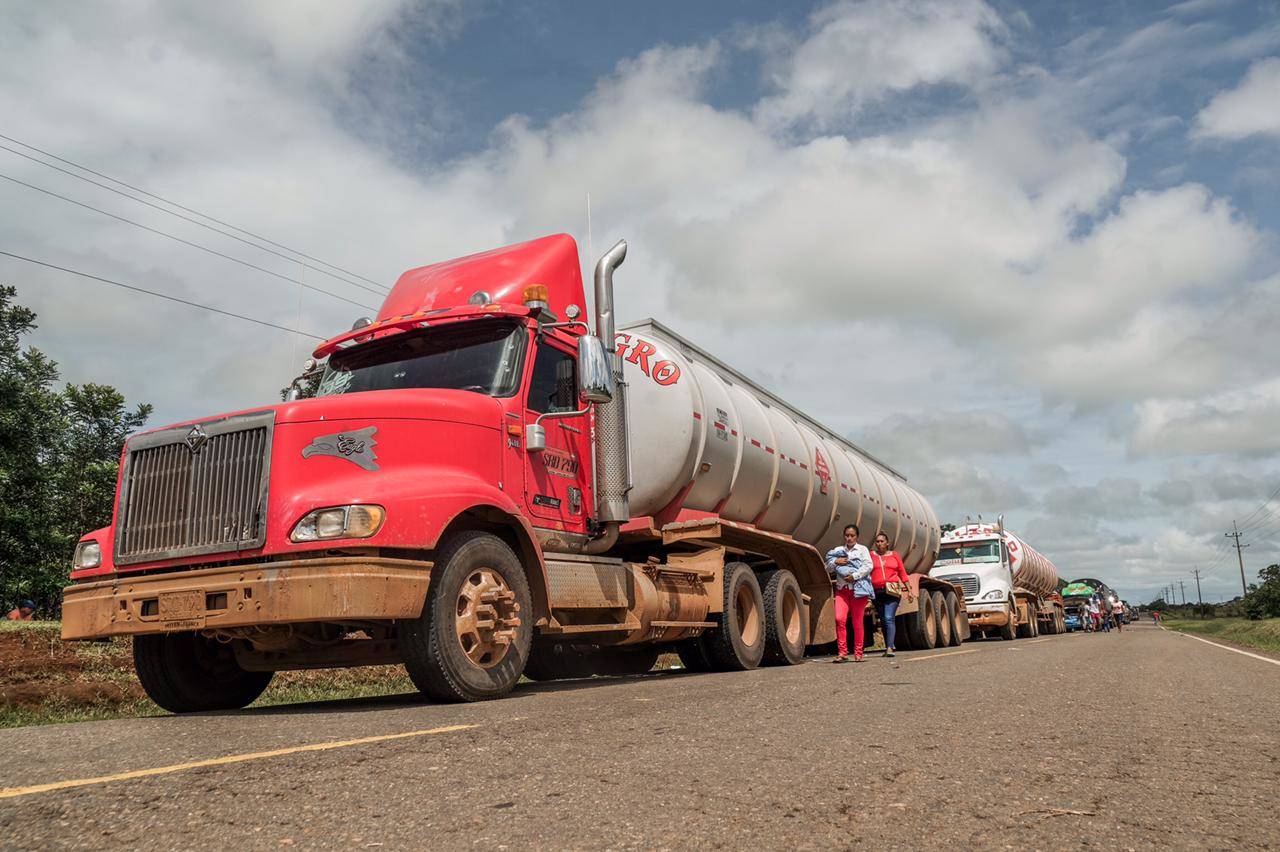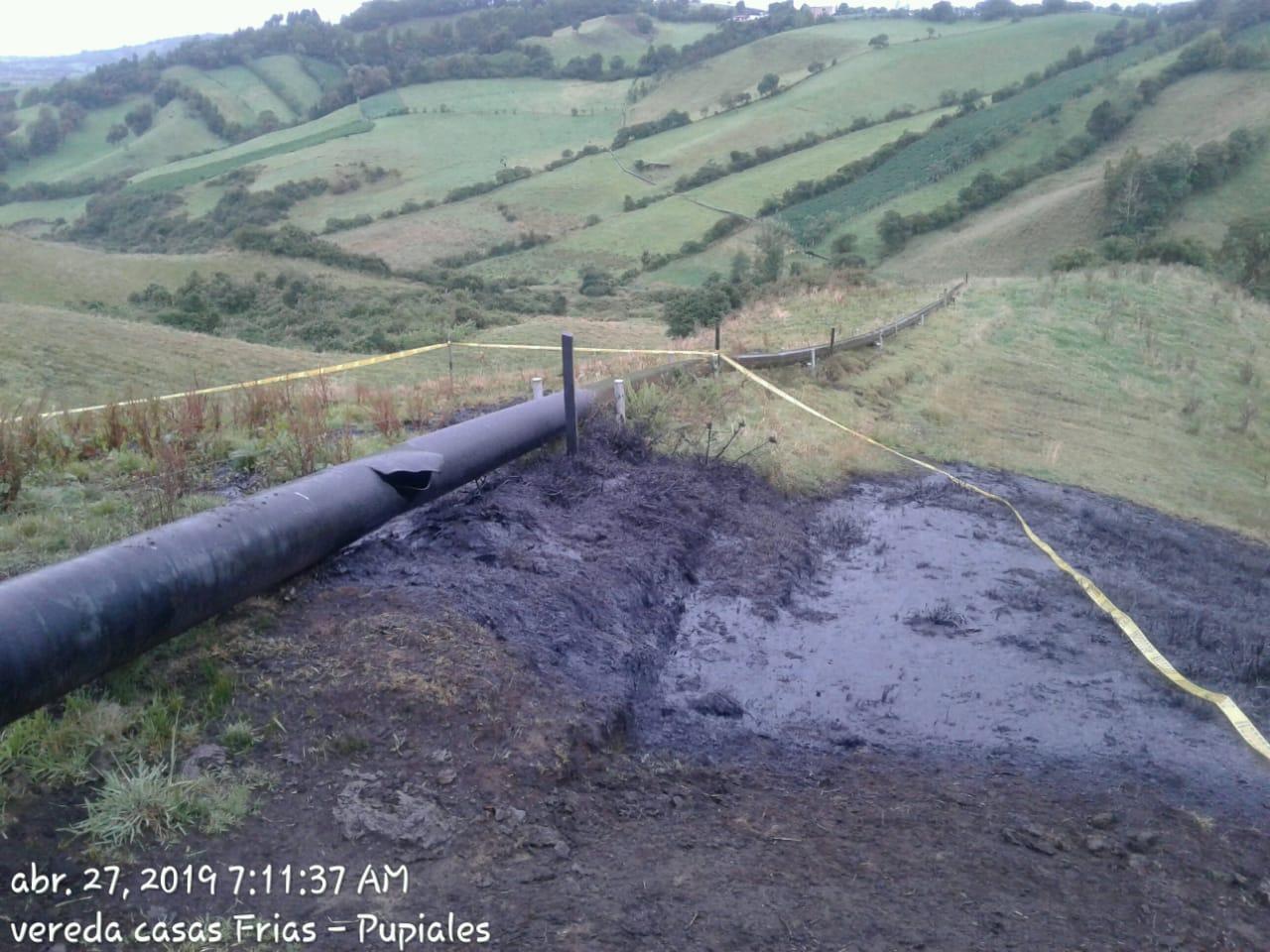The excessive increase in blockades and attacks has oil companies on alert: mafias are allegedly behind them to profit.

The oil industry in Colombia faces an increasingly complex outlook due to a worrying increase in social unrest in the regions where the companies operate.
Data from the Colombian Oil and Gas Association (ACP) indicates that last year, social unrest worsened to the point that 634 blockades and de facto larcenies were recorded in oil operations.
This figure represents a 151 percent increase compared to the 252 events reported in 2023, with the most affected department being Casanare, where 222 blockages were recorded, representing a 416 percent increase.
Other affected departments were Meta (up 171 percent), Córdoba (up 150 percent), Arauca (up 71 percent), and Cesar (up 28 percent). Each blockade lasted from five to 10 days.
Contrary to what happened in these departments, in Putumayo there was a 5 percent decrease in the number of blockades, going from 40 in 2023 to 38 last year.
These blockades and roadblocks directly impacted Colombia's oil production, resulting in a loss of between 25,000 and 100,000 barrels per day.
In total, deferred production reached 4 million barrels, 33 percent more than in 2023. This ultimately affected the final balance for 2024, as the country's production fell 0.5 percent to 772,621 barrels per day.
Lower production meant the regions failed to receive $28.5 million in royalties. Additionally, approximately 3,000 jobs were lost in the country, and purchases from regional suppliers totaling 2 billion pesos were lost.
Some interest groups understand the mechanisms of participation and protest in a way that is not democratic.
Other social and economic impacts included a reduction of nearly 35 billion pesos in social development programs (voluntary and contractual) and 500 fewer kilometers of tertiary and secondary roads as part of social investments.
"These investments couldn't be made because certain interest groups understand the mechanisms of participation and protest in a way that isn't democratic," said Frank Pearl, president of the ACP.

Photo: Jaime Moreno/EL TIEMPO Archive
In the first four months of 2025, 210 blockages to company operations have been recorded, with Meta and Casanare departments being the most affected.
According to the ACP, the main causes of conflict in the oil sector are related to labor issues and the provision of goods and services.
So far in 2025, labor disputes have been the main cause, accounting for half of the blockades and roadblocks (52 percent). In 2022, they accounted for only 33 percent.
Meanwhile, complaints about goods and services were the reason for 26 percent of reported incidents. This also represents a significant increase compared to 16 percent three years ago.
In this regard, the ACP stated that it is important to keep in mind that operations in the regions have decreased, which implies a reduction in the possibilities for contracting labor and goods and services.
Other causes of social unrest include issues that, for the most part, are unrelated to the industry. And although they fall under the jurisdiction of various levels of government, communities often turn to companies to raise these issues.
"There are contracting mafias that are part of the value chain and take advantage of legitimate participation mechanisms. This harms the sector and all Colombians, in addition to jeopardizing the country's fuel supply and energy security," commented the ACP president.
Therefore, he believes it is necessary to have state support "to dismantle mafias that view these mechanisms as a way of doing business that is not legitimate" and that end up affecting Colombians' rights to work and education.

Photo: Puerto Gaitán Mayor's Office
Regarding public order, the situation facing the oil sector in the regions is no better. Last year, approximately 40 attacks on oil pipelines and more than 180 illegal connections were recorded.
In addition, the Caño Limón-Coveñas Oil Pipeline (Arauca and Norte de Santander) has been out of service for more than 10 months, since August 2024, while the Trans-Andean Oil Pipeline (Putumayo-Nariño) has been inactive since October 2023.
According to the ACP, these incidents have intensified since the suspension of the ceasefire with the ELN in July 2024, exacerbating the deterioration of security in producing areas.
We need to resolve this chaos in which the sector is operating.

The Trans-Andean Pipeline has been inactive since October 2023. Photo: Private
In the first months of 2025, up to March, 13 attacks against oil infrastructure have been reported, mainly in the department of Arauca.
These attacks have an impact on the environment, increase companies' operating costs, disrupt the development of social projects, reduce investment, and affect local job creation.
"We need the legitimate power of the State to guarantee operating conditions. We need to resolve this chaos in which the sector and many regions of Colombia are operating. This is not sustainable," said Frank Pearl.
eltiempo





